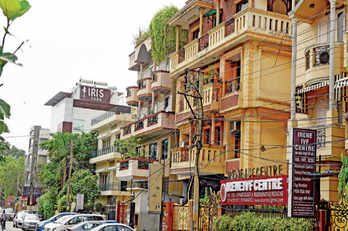A monitoring committee appointed by the Supreme Court, has in its latest report, objected to the manner in which regularisation of unauthorised colonies in Delhi is being taken up under a “populist election agenda”. The Committee warned that this would have a “serious and unavoidable effect on the existing infrastructure” and would give “undue advantage to encroachers of public land over law abiding citizens”.
The agenda of both the Centre and the Aam Aadmi Party government for the assembly election next year include bringing these illegal colonies in the civic services fold. A cabinet note has been prepared by the Housing and Urban Affairs Ministry of the Narendra Modi Government offering land ownership rights to people residing in 1,797 unauthorised colonies in the Delhi.
The report of the monitoring committee stated that honest tax payers are paying huge amounts of money to get their premises regularised while occupants of the unauthorized colonies are not paying dues or penalties. Thus, regularisation at the cost of bona-fide residents of Delhi only creates a “moral stigma” with respect to the rights of honest citizens.
The panel clarified citing the current laws, Master Plan Delhi 2021 and Supreme Court orders that colonies existing in reserve forest land, encroached public spaces, or those colonies which are a hindrance to infrastructure or right of way of railway lines, MPD roads, trunk water/sewer lines and non-residential use in violation of MPD cannot be regularised.
The monitoring panel made six key recommendations to the Supreme Court on regularisation, which included that no deviation should be made from the rules laid down for payment of cost of land, and that the colonies should have boundaries and proper infrastructure as well as resident welfare associations. It further stated that the “issue should not be exploited for political gains by any agency” and that the construction in these colonies “should be brought under prescribed development control norms by the individual owner while the cost of land should be collected by local bodies/DDA on behalf of land owning agency”. To avoid encroachment and mushrooming of illegal colonies in future, the panel advised the DDA to earmark accommodation of the migrant population.
The Supreme Court’s 2006 order which said that regularisation should be allowed only after the state/civic authorities provided basic services had been violated, as was pointed out by the report. The committee warned that periodic regularisation of this sort would have a serious effect on existing infrastructure. The report also noted that there would be an increased requirement of additional sewer lines as mixed land use and commercial activities in violation of MPD would put pressure on the existing infrastructure.
There exist approximately 2,041 illegal colonies in Delhi. With the rise in the number of such colonies, the problem has almost become unmanageable, the panel said.
Courtesy/By: Dipsi Soni
|
14 Jul 2019

